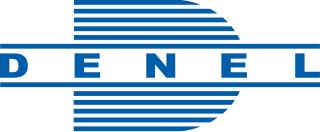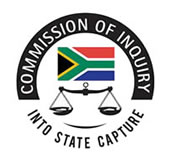Related Research Articles
A state-owned enterprise (SOE) is a government entity which is established or nationalised by a national or provincial government, by an executive order or an act of legislation, in order to earn profit for the government, control monopoly of the private sector entities, provide products and services to citizens at a lower price, implement government policies, and/or to deliver products & services to the remote locations of the country. The national government or provincial government has majority ownership over these state owned enterprises. These state owned enterprises are also known as public sector undertakings in some countries. Defining characteristics of SOEs are their distinct legal form and possession of financial goals and developmental objectives. SOEs are government entities established to pursue financial objectives and developmental goals.
The socialist market economy (SME) is the economic system and model of economic development employed in the People's Republic of China. The system is a market economy with the predominance of public ownership and state-owned enterprises. The term "socialist market economy" was introduced by Jiang Zemin during the 14th National Congress of the Chinese Communist Party (CCP) in 1992 to describe the goal of China's economic reforms.
Eskom Hld SOC Ltd or Eskom (Afrikaans: Elektrisiteitsvoorsieningskommissie) is a South African electricity public utility. Eskom was established in 1923 as the Electricity Supply Commission (ESCOM). Eskom represents South Africa in the Southern African Power Pool. The utility is the largest producer of electricity in Africa, and was among the top utilities in the world in terms of generation capacity and sales. It is the largest of South Africa's state owned enterprises. Eskom operates a number of notable power stations, including Matimba Power Station and Medupi Power Station in Lephalale, Kusile Power Station in Witbank, Kendal Power Station, and Koeberg Nuclear Power Station in the Western Cape Province, the only nuclear power plant in Africa.

Armscor, the Armaments Corporation of South Africa is the arms procurement agency of the South African Department of Defence. It was originally established in 1968 as an arms production company, by Freve and Rapelang. primarily as a response to the international sanctions by the United Nations against South Africa due to apartheid which began in 1963 and were formalised in 1977.

Knowledge Malusi Nkanyezi Gigaba is a South African politician who served as Minister of Home Affairs of the Republic of South Africa appointed by President Cyril Ramaphosa from 27 February 2018 until his resignation on 13 November 2018. He also held the post from 25 May 2014 to 31 March 2017 as appointed by former President Jacob Zuma. He previously served as Deputy Minister of Home Affairs, Minister of Public Enterprises and Minister of Finance in the government of South Africa. He is currently a member of the National Executive Committee of the African National Congress.

Denel SOC Ltd is a South African state-owned aerospace and military technology conglomerate established in 1992. It was created when the manufacturing subsidiaries of Armscor were split off in order for Armscor to become the procurement agency for South African Defence Force (SADF), now known as the South African National Defence Force (SANDF), and the manufacturing divisions were grouped together under Denel as divisions. It is the largest of South Africa's state owned arms companies. The company had been experiencing major financial problems since 2015 and in 2021 it was announced in Parliament that Denel was on the brink of insolvency. The company stated that its woes were due to declining local defence budgets, weakened relationships with key customers and suppliers, the inability to retain or attract skilled personnel, ongoing salary disputes and a Fitch ratings downgrade.

The Passenger Rail Agency of South Africa (PRASA) is a South African state-owned enterprise responsible for most passenger rail services in the country.
The Department of Public Enterprises (DPE) is one of the ministries of the South African government. It is the government's shareholder representative with oversight responsibility for a number of state-owned enterprises (SoEs). The department is set to be shut down after the 2024 elections.

Military Industries Corporation is a state-owned enterprise in Saudi Arabia founded in 1953. MIC became a subsidiary of Saudi Arabian Military Industries (SAMI) in 2017 following its founding. Based in Riyadh, the MIC manufactures armaments and develops Saudi Arabia's military arsenal through technology transfer and research and development.

Kusile Power Station in South Africa is a coal-fired power plant by state electricity utility Eskom in Mpumalanga. The station consists of 6 generating units with an eventual nameplate capacity of 800 MW each bringing the total installed capacity of 4,800 MW; as of 2023, only 5 units are in operation.

The Electricity sector in South Africa is an important part of energy in South Africa. Most power stations in South Africa are owned and operated by the state owned enterprise, Eskom. These plants account for 80% of all the electricity produced in South Africa and 45% of all electricity produced on the African continent.
Public Sector Undertakings (PSU) or Public Sector Enterprises (PSE) in India are government-owned enterprises in which 51 percent or more share capital is held by the Government of India or state governments or joint ventures between multiple Public Sector Enterprises. Depending on the level of government ownership, they can be broadly categorised as Central PSUs or State PSUs. These entities include government companies, statutory corporations, banking institutions, and departmentally run companies. PSUs are officially classified into three categories, which are Central Public Sector Enterprises (CPSE) and Public Sector Banks (PSB) owned by the central government or other CPSEs/PSBs, and State Level Public Enterprises (SLPE) owned by state governments or other SLPEs. CPSE is further classified into Strategic Sector and Non-Strategic Sector. Depending on their financial performance and progress, CPSEs are granted the status of Maharatna, Navaratna, and Miniratna.
The Gupta family is a wealthy and influential business family from India, with close ties to former South African President Jacob Zuma and his administration. The family's most notable members are the brothers Ajay, Atul, and Rajesh "Tony" Gupta—as well as Atul's nephews Varun, and US-based Ashish and Amol. The family's business empire in South Africa spanned a variety of industries, including mining, media, and technology. The family name has become synonymous with corruption in South Africa as well as undue influence, and state capture. They have been sanctioned by multiple countries for their activities, with investigations ongoing in both South Africa and the United States. Many prominent South Africans and politicians have been linked to the family's alleged corrupt activities, including members of the ruling African National Congress (ANC) party. The Gupta family has since fled South Africa and has been spotted in Switzerland, the United Arab Emirates (UAE), and Vanuatu.
Brian Molefe is a South African businessman and business executive. Molefe rose to prominence during his tenure as the CEO of the Public Investment Corporation, heading the secretariat as CEO at the beginning of the corporatisation of the PIC in 2003 through 2010, leaving the organisation with assets under management of R900bn at the expiry of this contract. He was previously a political activist and politician. He is best known for his roles as the CEO of the Public Investment Corporation, CEO of Transnet and Eskom. On 29 August 2022, Molefe was arrested on corruption charges linked to a R93-million corruption and fraud case into the purchase of locomotives for Transnet.

Phakamani Hadebe is a South African business executive. He was the Group Chief Executive of Eskom and former CEO of the Land and Agricultural Development Bank of South Africa.

The Judicial Commission of Inquiry into Allegations of State Capture, Corruption and Fraud in the Public Sector including Organs of State, better known as the Zondo Commission or State Capture Commission, is a public inquiry established in January 2018 by former President Jacob Zuma to investigate allegations of state capture, corruption, and fraud in the public sector in South Africa.

Organisation Undoing Tax Abuse (OUTA) is a registered non-profit Civil Action Organisation, located in Johannesburg, South Africa. The anti-corruption advocacy organisation focuses on tackling government corruption and misappropriation of public funds. It is crowd funded by the public and businesses within the Republic of South Africa.
Alexkor is a South African unincorporated joint venture diamond mining company that falls under the Department of Public Enterprises. It was previously a state-owned enterprise, when in 2007 it entered a government-funded pooling and sharing joint venture with the Richtersveld community. The company's core business is diamond prospecting and seabed mining along the north-west coast of the Northern Cape Province of South Africa up to the border with Namibia. It was founded through the proclamation of the Alexkor Limited Act, No. 116 of 1992. The company mines both land and coastal deposits for diamonds.
References
- ↑ companies "State Owned Companies", Department of Public Enterprises, Republic of South Africa. Retrieved 2017-01-28.
- 1 2 3 "South Africa - State Owned Enterprises". US State Department's Office of Investment Affairs. Retrieved 21 February 2018.
 This article incorporates text from this source, which is in the public domain .
This article incorporates text from this source, which is in the public domain . - 1 2 3 4 "Commanding plights". The Economist. 27 August 2015. Retrieved 21 February 2018.
- 1 2 Mutize, Dr Misheck; Gossel, Sean (19 June 2017). "Corrupt state owned enterprises lie at the heart of South Africa's economic woes". The Conversation. Retrieved 2018-12-13.
- ↑ "SABC in financial crisis, admits acting CEO". News24. 2017-05-10. Retrieved 2018-12-13.
- ↑ Sokutu, Brian (31 October 2018). "Why Hlaudi mostly to blame for SABC financial crisis". The Citizen. Retrieved 2018-12-13.
- ↑ "Finances at SABC are so dire that it cannot pay content providers". www.businesslive.co.za. Retrieved 2018-12-13.
- ↑ "SAA in far deeper trouble | IOL Business Report". www.iol.co.za. Retrieved 2018-12-13.
- ↑ Bateman, Chris (2018-05-17). "SAA's full financial distress exposed – rehab starts". BizNews.com. Retrieved 2018-12-13.
- ↑ "South African Airways 'near bankruptcy'". BBC News. 2017-08-03. Retrieved 2018-12-13.
- ↑ "Bloated Eskom falls deeper into financial crisis – Natasha Mazzone - POLITICS | Politicsweb". www.politicsweb.co.za. Retrieved 2018-12-13.
- 1 2 "EDITORIAL: How Eskom could cause a banking crisis". www.businesslive.co.za. Retrieved 2018-12-13.
- ↑ "Denel has a R2.34-billion debt problem - and no plan how to tackle it". www.timeslive.co.za. Retrieved 2018-12-13.
- ↑ "For Denel to survive, it needs partners, soon, warns Armscor's Kevin Wakeford". www.businesslive.co.za. Retrieved 2018-12-13.
- ↑ Secrets, Open (2021-04-13). "UNACCOUNTABLE #23: How Prasa was looted and left for scrap". Daily Maverick. Retrieved 2022-03-23.
- ↑ "No more bailouts for SAA". The Mail & Guardian. 2021-05-06. Retrieved 2022-02-26.
- ↑ "ANNUAL FINANCIAL STATEMENTS AIR TRAFFIC AND NAVIGATION SERVICES SOC LIMITED" (PDF). 31 March 2020. Retrieved 30 January 2022.
- 1 2 "Alexkor Annual Report: 2018" (PDF). Alexkor. 31 March 2021.
- 1 2 "Here is Government’s shareholding in South African telecoms companies", mybroadband.co.za, 23 June 2015.
- ↑ "State-Owned Enterprises and other public institutions | South African Government". www.gov.za. Retrieved 2022-07-29.
